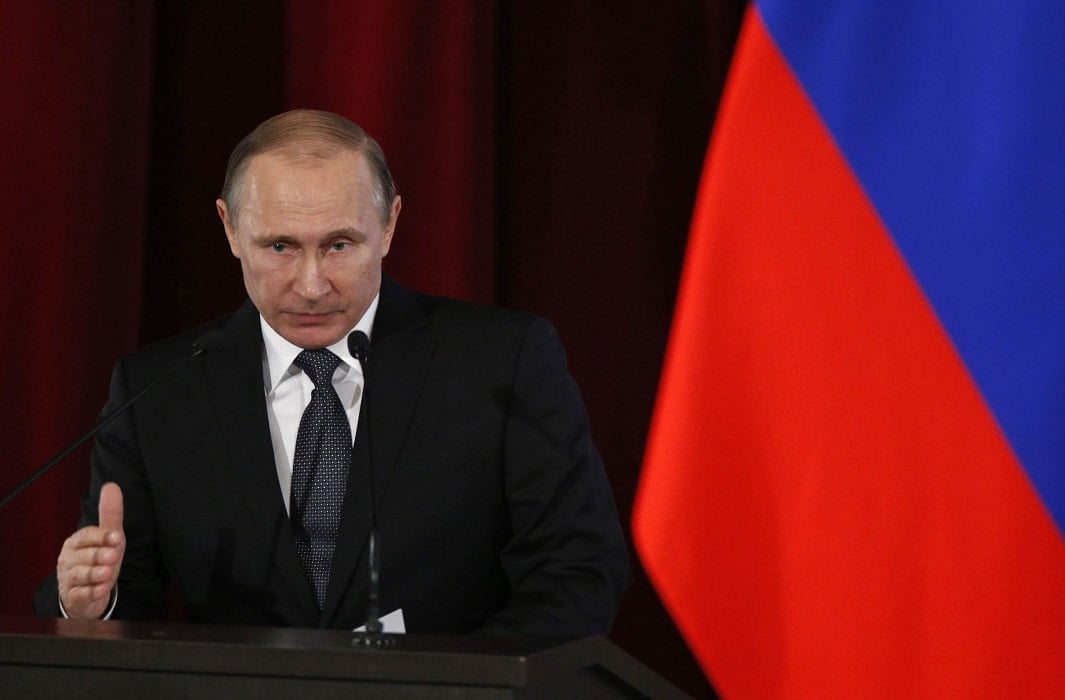[vc_row][vc_column][vc_column_text]There was a sentimental 1966 movie, The Russians Are Coming, The Russians Are Coming. In 2017, the Russians reappear in American imagination in darker shades
Parsa Venkateshwar Rao Jr
It is a strange situation, to say the least. US President-elect Donald Trump is at loggerheads with the country’s intelligence agencies—the Federal Bureau of Investigation (FBI) and the Central Intelligence Agency (CIA). And in the battle between Trump and intelligence agencies, the bone of contention is the old enemy—Russia. FBI and CIA are playing true to expectations when they think that Russia, the old enemy and villain is the new enemy and villain after the post-Cold War interregnum of a quarter century.
The surprising thing is Trump is not at all harsh on Russia or the Russian president, Vladimir Putin. Putin expressed his liking for Trump, and the Russian president’s aversion for Democrat presidential candidate is quite unconcealed. So, the inference being drawn is that Putin used Russian intelligence agencies and its hackers to spread “fake news” about Hillary and contributed to her defeat in the election. Many of the American politicians, and especially the liberal media, believe that there was a Russian hand behind Hillary’s fall. They are all looking for unimpeachable proof to confront Trump, to prove that he won thanks to the devilish Russians.
Has the New Cold War begun, a 2017 Rhett Butler would be tempted to ask. It seems it has, but it may not develop into a full-fledged ideological contest that it was during the old Cold War. Putin is no communist thought he was the protégé of his communist boss, Yuri Andropov, the second last one before reformist Mikhail Gorbachev took office in 1985 after the death of the last communist general secretary, Konstantin Chernenko. But he is a Russian ruler made in the image of the long-forgotten pre-communist Tsars/Czars. He is not trusted by the liberal West, and he even wants not to be trusted by the liberals because he has no use for liberals. It is perhaps this contempt for liberals that ties Putin to Trump and vice versa.
Ex-Exxon CEO Rex Tillerson is known to be a friend of Putin and the Russians, and Trump’s nominee for the post of secretary of state. At the senate hearings on Wednesday, the Senate Foreign Relations Committee, especially former Republican presidential nomination aspirant, Marc Rubio grilled Tillerson about his views on Putin. But Tillerson held out, refusing to make a negative assessment about the Russian president with incomplete information. Trump too held out from saying anything against Putin at the press conference on Wednesday. Both Tillerson and Trump were willing to believe that Russia could be a possible villain. But as to Putin, not yet is their answer.
Why are Trump and Tillerson not willing to judge Putin? The reason is that they are not wedded to the liberal rhetoric of democracy and human rights. They seem to believe that if trade with Russia were to benefit the US business, then it should be okay to sup with the proverbial devil. And at least in the case of Trump, he seems to be harping on the point that Russia could be an American ally in the war against the Islamic State (IS). But his opposition to IS is not firm either because he blames Barak Obama and Hillary Clinton for the creation of IS because Obama pulled out American troops from Iraq much too soon. Of course, it looks more like off-the-cuff political riposte on the part of Trump rather than a careful thought-out assessment. It should not come as a surprise if Trump would not find partnering with the IS to fight some other enemy. That flows from his non-ideological and amoral position in matters of trade.
It is turning out to be dark comedy, in complete contrast to a 1966 Hollywood movie, The Russians Are Coming, The Russians Are Coming, directed by Norman Jewison, and starring Alan Arkin and Eva Marie Saint among others, where a Russian submarine runs aground near New England, off the eastern coast of America, and the flutter it causes. But it ends on a sentimental Hollywoodish note, with flowers and tears and love. That was liberal Hollywood loving the ordinary Russian folk and hating the dark powers symbolised by the communists in the Kremlin. In 2017, it appears that the non-liberal Trump and Tillerson seem to like the dark Russian ‘prince’ while remaining suspicious of Russia!
Lead picture: It is perhaps his contempt for liberals that ties Russian president Vladimir Putin to US president-elect Donald Trump, and vice versa. Photo: UNI[/vc_column_text][/vc_column][/vc_row]


 India News23 hours ago
India News23 hours ago
 Cricket news23 hours ago
Cricket news23 hours ago
 India News22 hours ago
India News22 hours ago
 Latest world news10 hours ago
Latest world news10 hours ago
 Latest world news10 hours ago
Latest world news10 hours ago
 Latest world news9 hours ago
Latest world news9 hours ago
 India News9 hours ago
India News9 hours ago
 India News35 mins ago
India News35 mins ago











